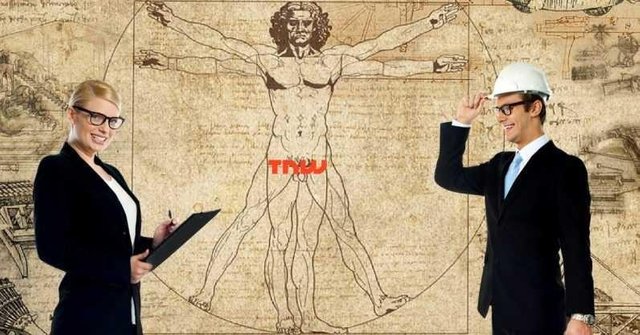
Humanoid robots are a vanity venture: an endeavor to make simulated life in our own particular picture – basically attempting to play God. The issue is, we're bad at it. Ask somebody in the city to name a robot and you may hear "Eliminator", "the Cybermen" or "that gold one from Star Wars". What you're not going to be given are names like Tesla Model X, Cassini or DJI Inspire 2. These are on the whole robots, however they don't take after the science fiction story of what robots ought to resemble. The truth of the matter is, the robots of the not so distant future won't go about on two legs like the rearranging C3PO. What's more, they'll be considerably more productive than us bipeds.
Our impression of what a robot is has been spoiled by sci-fi and mainstream culture. The expression "robot" was first utilized as a part of 1920 by Karel and Josef Čapek in a play called R.U.R. to depict a counterfeit robot. From that point forward, our narcissistic wants have seen the word end up noticeably synonymous with humanoid robots, or androids.
We get a kick out of the chance to feel that we're the overwhelming animals on the planet, so versatile robots should seem as though us. Be that as it may, the truth of the matter is, they shouldn't. We can't fly, we're bad swimmers, we can't live in a vacuum and in the event that we need to movement more than a mile, the majority of us will get on some kind of wheeled vehicles. Bipedal movement has served us well yet it is restricted and requires a gigantic measure of mental ability and years of figuring out how to idealize. The PC forms of our mind are no place close to our level and are probably not going to be so for a considerable length of time to come. After about 100 years of improvement, our most exceptional humanoid robots can just barely open an entryway without falling over (time after time).
Is a plane a robot?
So what is the fate of mechanical autonomy? All things considered, it comes down to what you characterize a robot as. Lamentably there isn't a bound together meaning of what a robot is, yet the general agreement is that it's a physical gadget which can detect its environment and associate with nature with restricted human mediation. This could either be computerization, where errands are pre-modified, or self-governance, where the robot settles on choices all alone.
Suppose that I construct a little four-wheeled robot that can move from indicate A point B without colliding with anything. I can give it a guide and reveal to it where to go and it will do as such with no further directions. This sounds very clever, however what's the purpose of it? Well now how about we scale it up so you can sit in it. Presently all of a sudden it's not a robot, it's a driverless auto. However, all that is changed is the size.
I now need to take off on my occasions. I joyfully get on the plane and see the two pilots in the cockpit. When I arrive, they're still there and I think what an extraordinary activity they did. More than likely however, the pilots didn't really fly the plane. They will have inputted summons to the autopilot and the PC will have flown the plane. The plane, in every way that really matters, is a robot with human bosses to assume control on the off chance that anything turns out badly, much the same as a driverless auto.
Planes, trains cars … and robots
The eventual fate of about all vehicle is versatile robots. We're as of now there with automated flying machine and inside the following decade, we'll have robot autos. Robots officially fly through space and scour the base of the sea. It won't be too well before we have driverless prepares and cable cars as well. Automatons will turn into a greater piece of society. Every one of these things are robots, yet they've must be called something different because of societal impression of what a robot is.
What this features is that we adjust the innovation to fit the earth. As opposed to building robots that seem as though us with the goal that they can be an immediate substitution, you'll begin to see things being worked to suit an issue. For what reason do you require a robot with complex hands to get a couple of scissors or a mallet, when it can be incorporated with their arms? Why assemble a robot to move over flotsam and jetsam in a seismic tremor on two legs, when four or six legs – or a wheeled track – would be considerably more steady?
There is almost certainly that inevitably androids will stroll around and chatting with us. You'll pass them meandering down the road or hold a discussion with one as you do your shopping. Yet, for the time being, the robots of the not so distant future won't walk like us. Rather they'll drive, they'll fly, they'll swim or they'll stroll on any number of legs – with the exception of two.
Upvote, follow, comment, Resteem @ajokebunmi